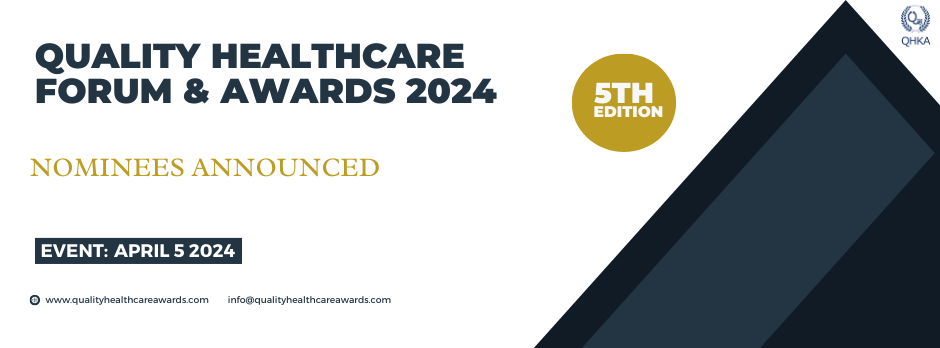The Media’s Role in Promoting Good Health and Well-being

We have under six years to deliver on the global 2030 Agenda for Sustainable Development as espoused in the 17 Sustainable Development Goals (SDGs).
Published in 2023, the latest SDG Progress Report, Special Edition, indicated that we are leaving more than half the world behind. Progress on more than 50 per cent of the SDG targets is weak and insufficient, and on 30 per cent, it has stalled or gone into reverse.
The SDG 3 key indicators, which seek to promote good health and well-being, have seen some progress, with 146 out of 200 countries or areas meeting or on track to meet the SDG target on under-5 mortality. Global AIDS-related deaths have reduced by 52 per cent since 2010 because of effective HIV treatment and prevention strategies, and at least one neglected tropical disease (NTD) eliminated in 47 countries.
However, little progress has occurred in reducing maternal mortality and expanding universal health coverage, and 381 million people were pushed or further pushed into extreme poverty in 2019 due to out-of-pocket payments for health. Reports indicate that Africa has made steady and commendable progress in achieving some SDG targets, especially in the innovation and technology sectors. Nonetheless, the number of on-track targets is less than those requiring urgent action and acceleration.
One of five key recommendations for urgent action towards achieving the SDG targets calls for governments to strengthen national and subnational capacity, accountability, and public institutions to deliver accelerated progress by enhancing civic space and public engagement in policy and decision-making.
Meeting SDG Targets Calls for Collective Responsibility
The SDG principle of ‘leave no one behind’ is reflected in the collective responsibility and commitment to collaborate directly or indirectly to keep the promise of a healthy, safe, thriving world.
In Kenya and worldwide, we have seen public, private, and independent institutions, organisations, the media, and the public contribute to this collective responsibility to deliver on the ambitions of the SDGs. Of utmost importance is the role that the media plays in keeping citizens informed, engaged, and educated.
Considering the call for urgent action to stay on track in meeting all the SDG targets, including SDG 3 and SDG 16 – promote peaceful and inclusive societies for sustainable development, provide access to justice for all and build effective, accountable, and inclusive institutions at all levels – the role of the media cannot be underestimated.
Social accountability with duty bearers and the political class
The media has a prolific position and influence that should be continually leveraged to promote public discourse on health matters, including facilitating forums with line ministries, national and subnational governments, the public, and relevant policymakers.
As the people’s voice on many issues, including health, the media promotes community engagement and discourse and weaving in human interest angles to make diverse and complex matters relatable and build into local contexts.
Promoting public health awareness and education
While the competing priorities in the news cycle and the public information overload are growing realities, there is a continued need for media outlets to promote health awareness and education by simplifying complex health information and presenting it in bite-sized bits for easy and memorable recollection.
More importantly, there is a need to increase public awareness of issues that do not make the news but are prevalent among vulnerable populations, such as the effects of poor-quality healthcare in households, the ravaging and debilitating effects of little-known neglected tropical diseases (NTDs) and the nexus between health and the social determinants of health such as climate change.
By continually demonstrating health success stories in the news cycle, actively participating in health awareness campaigns and promoting the constitutional right to information and access to healthcare, the media can continue to impact achieving health-related SDG targets.
Fighting Misinformation and Disinformation
To quote the former UN Secretary-General, Kofi Annan, “If information and knowledge are central to democracy, they are the conditions for development. It is that simple.” It is essential to note that for information and knowledge to be useful for development, they need to be factual and accurate, and one way the media can help shape this is by fighting against misinformation and disinformation.
Making use of health data in building trust with the public, transparency in the process of collecting and analysing health data, using credible and reliable sources, and fact-checking for accuracy and recency are ways the media can fight misinformation and disinformation. To increase public awareness and understanding of health data, the media should continue collaborating with technocrats and researchers to promote health data availability and use.
While these are examples of how the media can contribute to the collective responsibility towards achieving the health SDGs, innovation and technology such as AI present immense opportunities and promise for accountability and awareness for all SDGs.
Acknowledging the fundamental role media platforms have in promoting health and general well-being, the Quality Healthcare Awards, a platform for recognising outstanding performance and advancing a culture of excellence and innovation in health, includes an award of media excellence in promoting health and well-being as outlined in SDG 3 targets, honouring both media practitioners and media companies in Kenya for their remarkable contributions.
Contacts: info@qualityhealthcareawards.com

